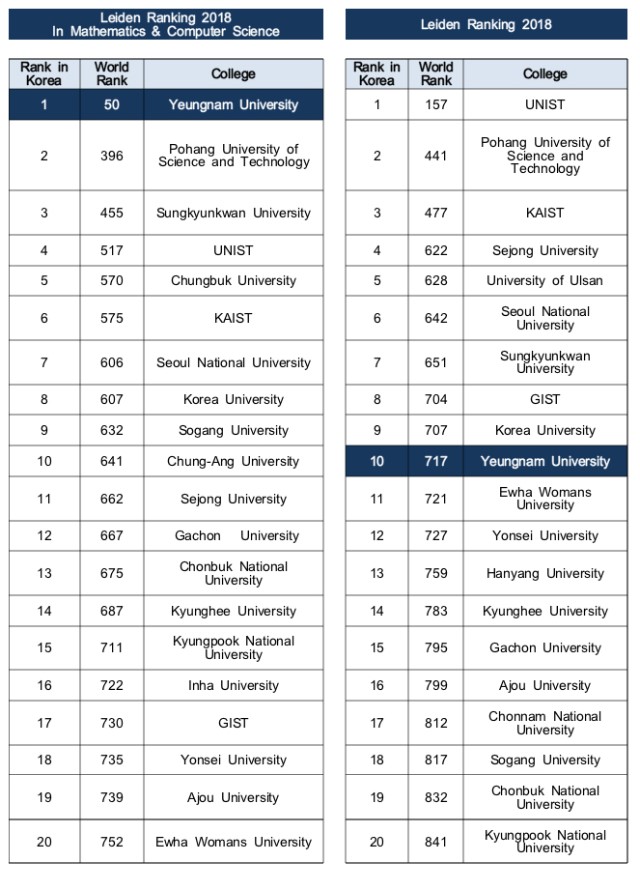2018 Leiden Rankings, proving world-class research capacities
Overall ranking 10th in Korea, 7th in life and earth science, 15th in social science and humanities
Qualitative factors such as university reputation excluded, rankings based on achievements and quality of research
[May 23, 2018]
The research capacities of YU (President Sur Gil-soo) were once again to be at world-class levels.
YU was ranked 50th in the world and first in Korea in the mathematics & computer science sectors in the ‘2018 Leiden Ranking’ that assesses global university rankings based on qualitative levels of theses. YU was ranked in the top 50 of the world for four straight years in the mathematics & computer science sectors. When excluding YU, there is not a single Korean university ranked in the top 300, thus highlighting the research capacities of YU.
The Leiden Ranking publishes rankings in five sectors such as overall ranking, mathematics & computer science, biomedical & health sciences, life & earth sciences, physical sciences & engineering, and social sciences and humanities.
In the overall ranking, YU climbed up the ladder from 15th in Korea last year to 10th this year. This is due to the fact that the ratio of the top 10% thesis ratio rose from 7.1% last year to 8.1% this year. It also climbed the ranks in the life & earth sciences to seventh place in Korea, 15th in social sciences and humanities, and 19th in physical sciences / engineering, thus being recognized for the superiority of its research capacities in all fields. (based on proportion of theses in top 10% of citation frequency)
The Leiden Ranking is computed based on the number of theses and the ratio of citations of theses, while excluding subjective qualitative assessment elements such as college reputation, etc. by Leiden University of the Netherlands. The Leiden Ranking computes rankings by comparing the theses in the top 10% cited theses in each academic field with the total number of theses. Therefore, it is an important index that makes it possible to judge the research achievements and quality of research of universities. It announces rankings annually since 2011 by analyzing theses of the past four years by using the database of Thomson Reuters, which is an academic information service company. This year, it evaluated a total of 938 universities around the world that published at least 1,000 international theses from 2013 to 2016. A total of 35 Korean universities including YU were named in the rankings.
The Leiden Ranking mainly uses the top 10% cited theses in each academic field by the ratio comparing with all theses. The ratio of the top 10% cited theses are the main indices of the rankings, but it also announces the top 1% thesis ratio, etc. through the free database.










